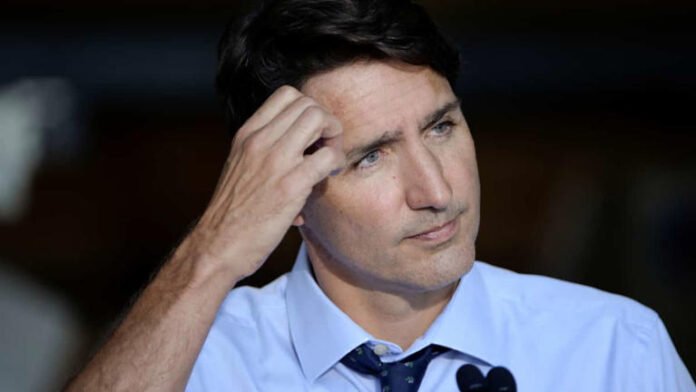Ottawa has ordered six Indian diplomats to leave the country following New Delhi’s withdrawal of its envoy from Canada. This move is the latest in a series of escalating measures following a bitter diplomatic spat that has strained relations between the two nations, both of which share long-standing economic and people-to-people ties.
Background of the Diplomatic Crisis
The current crisis can be traced back to Canadian Prime Minister Justin Trudeau’s allegations earlier in 2023 that India may have been involved in the killing of Hardeep Singh Nijjar, a Canadian Sikh activist. Nijjar, a prominent figure in the Sikh community in Canada and an advocate for an independent Khalistan, was shot dead in British Columbia in June 2023. Trudeau claimed that “credible evidence” suggested Indian government agents could be behind Nijjar’s assassination, a claim that was vehemently denied by the Indian government.
India responded to these allegations with strong words, calling Trudeau’s accusations “absurd” and “motivated.” The Indian government has maintained that Nijjar was a terrorist wanted in India for his involvement in separatist activities. Following the allegations, New Delhi issued statements demanding that Ottawa take action against anti-India elements allegedly operating from Canadian soil, referring to pro-Khalistan groups and individuals who advocate for the secession of Punjab from India.
Diplomatic Expulsions Begin
The already strained relationship took a dramatic turn when Canada expelled an Indian diplomat in September 2023. India retaliated by expelling a senior Canadian diplomat from New Delhi, plunging the relationship between the two nations into further uncertainty. Both sides have traded accusations, with Canada alleging interference in its domestic affairs and India calling out Canada for allegedly harboring extremists under the guise of free speech.
In October 2024, New Delhi took the significant step of withdrawing its high commissioner from Canada, signaling the deepening rift between the two nations. Canada’s decision to expel six Indian diplomats follows shortly after this, further intensifying the diplomatic standoff.
Canadian Foreign Minister Mélanie Joly defended the move, saying, “We will not tolerate any foreign interference in our internal affairs, and we expect all diplomatic missions to respect our sovereignty and the rule of law.” The six diplomats have been given a short window to leave the country, and their expulsion highlights the hardening of Ottawa’s stance toward New Delhi in recent months.
Impact on Diplomatic Relations
The expulsion of six Indian diplomats and the earlier withdrawal of India’s envoy signals the deepening of a diplomatic crisis that is likely to have long-term repercussions. Diplomatic expulsions, while not unprecedented, are typically regarded as a last resort, used when relations have deteriorated to the point where normal channels of communication have broken down. The situation between India and Canada appears to have reached such a juncture.
With the removal of several key diplomats, communication between New Delhi and Ottawa will become more challenging. Diplomatic missions play a crucial role in facilitating dialogue, trade negotiations, and cultural exchanges. The expulsion of such a significant number of diplomats could hinder not only governmental communication but also the operations of consular services that are vital to the large Indian diaspora in Canada.
Economic and Trade Consequences
The diplomatic spat comes at a time when India and Canada were engaged in negotiations to finalize a trade agreement. Bilateral trade between the two nations stood at approximately $10 billion in 2023, with both countries expressing interest in further enhancing economic ties. However, the breakdown in diplomatic relations threatens to derail these efforts. Trade talks have been suspended, and Canadian businesses with significant interests in India could face increased uncertainty.
Furthermore, Canada is home to a large Indian community, estimated at over 1.4 million people. The diplomatic row could potentially affect visa issuance, travel, and educational exchanges, as well as remittances sent back to India. Any prolonged disruption to the diplomatic channels could impact the personal and professional lives of thousands of families with ties to both countries.
The Way Forward
As the situation continues to evolve, both India and Canada are under pressure to find a diplomatic resolution to the crisis. While expelling diplomats is a powerful political gesture, it does not eliminate the underlying issues that need to be addressed. Both sides will likely require third-party mediation or international diplomatic efforts to facilitate de-escalation and rebuild communication channels.
The world is watching as two major democracies navigate one of their most serious diplomatic crises in decades. How India and Canada manage to reconcile their differences, or allow them to fester, could serve as a crucial test of their ability to prioritize long-term strategic interests over short-term political gains. The coming weeks will reveal whether a path toward normalization is possible or if the relationship between the two countries will remain frozen in an era of mistrust and retaliation.

